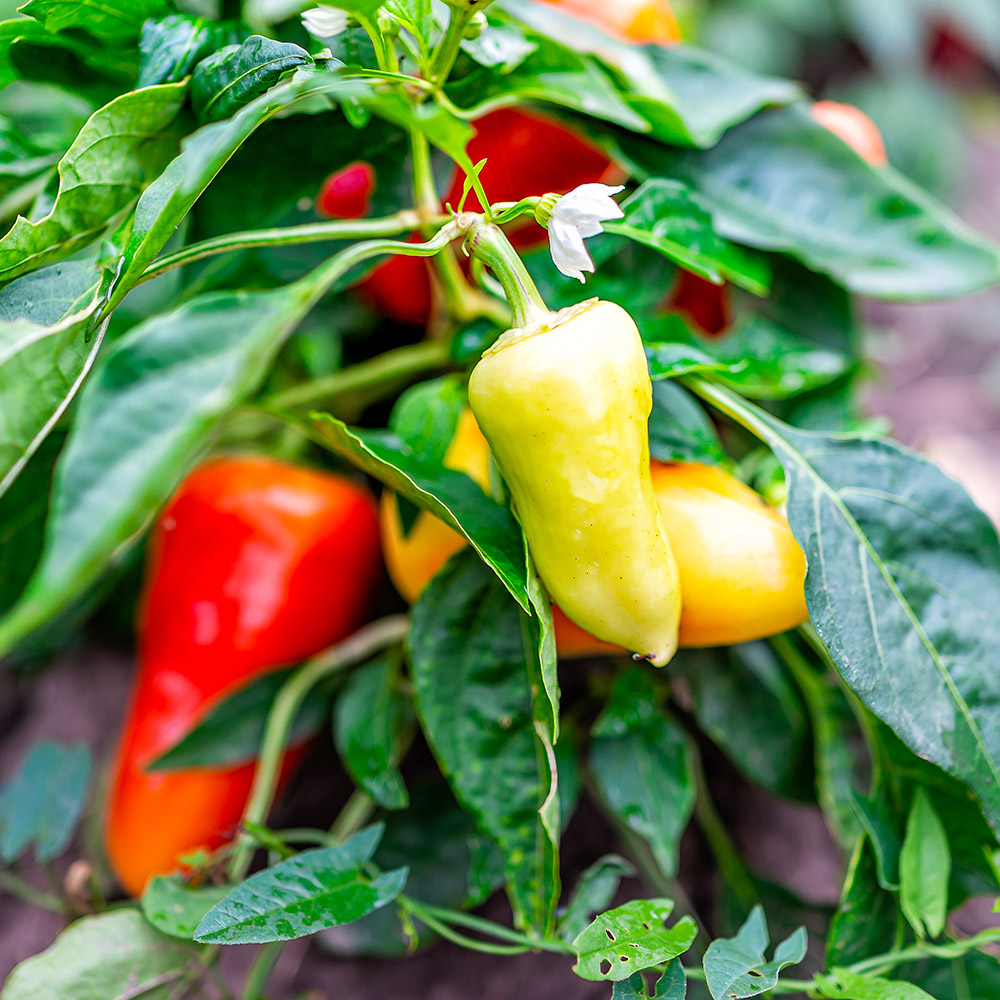Best Fertilizers for Peppers: Accomplish Superior Results in Your Garden
Organic Vs. Synthetic Fertilizers: Which Is Best for Nurturing Healthy Pepper Plants?
In the world of supporting healthy and balanced pepper plants, the option between artificial and natural plant foods stands as a critical decision with far-reaching effects. While both alternatives goal to offer vital nutrients to support plant development, the subtleties of their effect on the dirt, plant health, and the setting stimulate an argument that echoes throughout the horticulture neighborhood. Comprehending the distinct benefits and prospective mistakes of each fertilizer kind is vital for pepper cultivators seeking to maximize their returns while keeping a sustainable and eco-conscious approach.
Advantages of Organic Plant Foods
Organic fertilizers use an environmentally-friendly and lasting technique to nourishing pepper plants, giving necessary nutrients without using artificial chemicals. These natural fertilizers are obtained from organic sources such as compost, manure, bone meal, and algae, promoting dirt health and wellness and biodiversity. Unlike artificial plant foods, natural choices release nutrients gradually, making sure a stable and well balanced supply for pepper plants to flourish.
One considerable advantage of organic fertilizers is their capacity to improve soil framework and water retention. By enhancing soil wellness, natural fertilizers advertise beneficial microbial activity, which assists in nutrient uptake by pepper plants. Additionally, organic fertilizers lower the risk of chemical run-off, shielding water resources from pollution and guarding the environment.
Additionally, natural plant foods contribute to long-term soil fertility by promoting the growth of useful soil organisms. These organisms assist damage down organic matter, launching nutrients in a kind that is conveniently accessible to pepper plants. best fertilizers for peppers. By promoting a healthy soil ecological community, natural plant foods sustain lasting pepper growing techniques that profit both plants and the setting
Downsides of Artificial Plant Foods
Artificial plant foods, as opposed to their natural equivalents, posture numerous negative aspects when used to nurture pepper plants, influencing both plant wellness and ecological sustainability. One significant downside of artificial plant foods is their propensity to leach nutrients from the dirt quickly. This quick leaching can lead to nutrient imbalances in the dirt, creating plants to deal with toxicities or deficiencies. In addition, artificial plant foods can damage valuable dirt microorganisms, such as earthworms and useful germs, interrupting the soil community's balance.
Moreover, the overuse of artificial plant foods can contribute to water pollution. Excess plant foods not absorbed by plants can get rid of into water bodies, leading to eutrophication, where algae blossoms deplete oxygen degrees in the water, hurting marine life. Synthetic plant foods are generally acquired from non-renewable sources, such as fossil fuels, contributing to carbon discharges and ecological destruction throughout their production.
Nutrient Absorption Contrast
Reliable nutrient absorption plays a crucial function in the general health and wellness and development of pepper plants. When comparing natural and synthetic plant foods in regards to nutrient absorption, organic plant foods have the benefit of providing a more well balanced and slow-release source of nutrients (best fertilizers webpage for peppers). Organic plant foods contain a range of macro and trace elements that are not just helpful for the plants but also advertise healthy and balanced soil microbial task, which assists in nutrient uptake. On the other hand, synthetic fertilizers usually offer a quick launch of nutrients, which can bring about leaching and runoff, leading to reduced nutrient absorption prices by the plants.
Additionally, organic fertilizers enhance soil structure and water retention capacity, allowing pepper plants to access nutrients much more effectively. This enhanced dirt high quality promotes origin growth, enabling better nutrient absorption. Synthetic fertilizers, although originally enhancing plant development as a result of their high nutrient focus, might impede long-lasting nutrient absorption by degrading soil health over time.
Ecological Influence Factors To Consider

On the other hand, artificial fertilizers, although frequently even more concentrated and right away available to plants, can have destructive impacts on the environment otherwise applied effectively (best fertilizers for peppers). Their production this website calls for high energy inputs, bring about greenhouse gas discharges and contributing to environment change. The overflow of excess synthetic plant foods can infect water sources, leading to eutrophication and damaging aquatic environments.
Finest Plant Food Practices for Peppers
When feeding pepper plants, optimizing nutrient uptake and reducing environmental influence are vital considerations. To achieve this, it is necessary to adhere to ideal fertilizer practices tailored to the particular requirements of pepper plants. One vital technique is to execute a dirt test prior to applying any fertilizers. This test can determine the pH level of the soil and identify any nutrient deficiencies, directing you in choosing the most suitable fertilizer formulation.
One more crucial method is to fertilize pepper plants at the correct time. Generally, peppers take advantage of receiving plant food at growing and afterwards again when they start to flower. Over-fertilizing can lead to vitamins and mineral inequalities and hurt the plants, so it is important to follow recommended application rates.
Additionally, picking a balanced plant food with an NPK ratio that matches pepper plants' requirements is basic. Eventually, incorporating synthetic and organic plant foods sensibly can aid nurture healthy look at more info and balanced pepper plants while decreasing environmental effect.
Conclusion

Organic plant foods provide an environmentally-friendly and sustainable strategy to nourishing pepper plants, supplying important nutrients without the usage of synthetic chemicals. Unlike artificial fertilizers, natural options release nutrients gradually, guaranteeing a steady and well balanced supply for pepper plants to thrive.
Synthetic plant foods, in contrast to their natural counterparts, posture various downsides when made use of to nourish pepper plants, affecting both plant wellness and environmental sustainability. When contrasting artificial and organic plant foods in terms of nutrient absorption, organic plant foods have the advantage of offering a more well balanced and slow-release resource of nutrients.Additionally, natural fertilizers improve dirt structure and water retention capacity, permitting pepper plants to access nutrients much more effectively.